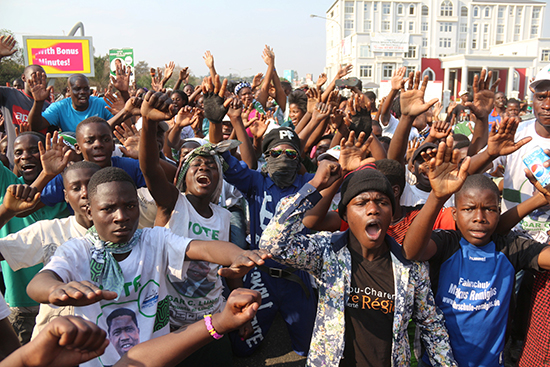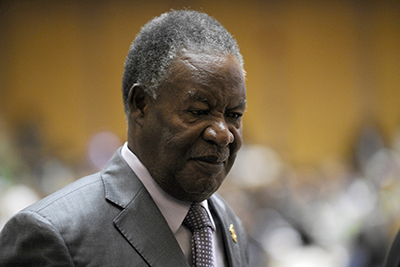
For Zambia’s press, election year brings assaults and shut down orders
Zambia’s press has come under sustained assault in this election year, with station licenses suspended, journalists harassed or arrested for critical coverage, and one of the country’s largest privately owned papers, The Post, being provisionally liquidated in a move that its editors say is politically motivated.

Zambia suspends licenses of three broadcasters
New York, August 24, 2016 – Zambian regulators should immediately reinstate the broadcasting licenses of three media outlets it revoked, and police should drop all charges against four media workers arrested when police sealed the offices of the country’s largest privately owned television station, the Committee to Protect Journalists said today.
Zambian editors arrested trying to enter newspaper’s offices amid tax dispute
Nairobi, June 28, 2016–The editor-in-chief of independent Zambian newspaper The Post was arrested trying to enter his newspaper’s offices today, after authorities closed it in a dispute over allegedly unpaid taxes. Fred M’membe, his wife Mutinta, and his deputy managing editor Joseph Mwenda, were released on bail, but face charges of breaking into a building,…
Journalists arrested in Zambia for publishing allegedly classified documents
New York, July 16, 2015–Zambian authorities have arrested two journalists and accused them of publishing classified documents, according to news reports. The Committee to Protect Journalists condemns the arrests and calls on Zambian authorities to release them immediately.

Mission Journal: In Zambia, Sata never fulfilled promise of greater transparency
“We’ll see for ourselves on Friday,” was a refrain on the lips of most journalists I met in Lusaka in mid-September, as they speculated on the health of President Michael Sata ahead of their country’s opening of parliament, where the leader was due to speak.
Attacks on the Press in 2013: Zambia
Promises of a freer media environment by the Patriotic Front, which won election in 2011 after a campaign that pledged greater broadcast media freedom and a law promoting access to information, had yet to be fulfilled by late 2013. Journalists operated cautiously lest they fell afoul of thin-skinned authorities, and staff members at state-owned publications…
Press freedom deteriorates in Cyberspace, Egypt, Russia
Risk List underlines mass surveillance, fatalities, and censorship New York, February 6, 2014–Mass surveillance programs by the U.S. and U.K., as well as restrictive Internet legislation by various governments and a wave of cyberattacks globally, are among the disturbing developments that have landed cyberspace on the Committee to Protect Journalists’ Risk List, released today.
Zambian editors charged with publishing false information
Police detained two journalists of the Daily Nation on December 12, 2013, and released them on bail the next day. Richard Sakala, owner and editor of the paper, and Simon Mwanza, the production editor, were charged with “publication of false information with intent to cause public alarm” under Section 67 of the Zambian penal code.
